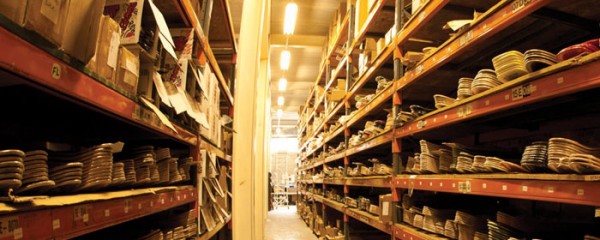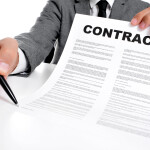16
May 2012
Which Distribution Fits Your Business?
Choosing the mode of distribution to develop your business is a big step going to determine the whole approach of the market. Many parameters play an main role in the final decision and you have to prioritize them regarding your objectives. Find here under pros and cons to every kinds of distribution to help you choosing the best one for you.
I. Supplying Goods Directly to Retailers
Pros
Mainland retailers are developing in the direction of large-scale networks with multiple outlets. By supplying goods directly to these large retailers, especially retail chains, it is possible for the supplier to achieve the aim of expanding the coverage, increasing the exposure, capturing the market and boosting the brand-name of its merchandise within a relatively short time.
Cons
As retail outlets draw large numbers of consumers, retailers are in a leading and dominant position. Suppliers usually have to pay all kinds of charges of considerable amounts (e.g. advertising fee, promotion fee, entry fee and management fee) both before gaining market access and during the course of sale, which substantially raises their operating costs and squeezes their profit margins.
Retailers (both foreign-invested and domestic) all sell on credit, with payments made at least 45-60 days, or even 90 days, after delivery. This increases the operating cost, tightens the cash flow and affects the fund control of suppliers. In the case of some enterprises which are burdened by cash and credit overdrafts, they stand great risks supplying to retailers they do not know all that well.
II. Appointing Agents/Distributors
Pros
Entering the market by appointing agents/distributors, especially large agents and distributors with extensive distribution networks, is a good option for small Hong Kong companies without a sound knowledge of the mainland market.
Since large agents/distributors generally have long-term cooperation relationship with retailers, it is easier for new products to find their way into the market through agents/distributors.
Compared with supplying goods directly to retailers, distributing goods through agents/distributors usually takes less time and covers a wider market reach.
Riding on the high volume of other goods handled by the large agents/distributors, the entry fees and logistics expenses can be reduced.
Dealing with only a few regional agents/distributors can give the supplier better control over its funds.
Cons
Since the supplier must allow its agents/distributors some profit margins, the price competitiveness of its products will inevitably be undermined.
Since agents/distributors have a lot of products to handle, they will not be able to give as much attention to individual products as suppliers do. This may affect sales as well as the collection and handling of consumer feedback.
Mainland agents/distributors have a relatively poor sense of service and the quality of their staff is uneven. This may also affect sales.
Some mainland enterprises do not always abide by contract terms, which may bring about credit risk.
III. Setting Up Own Retail Stores
Pros
Dealing with end users directly facilitates the provision of more professional and customised services to customers and helps promote sales.
It is conducive to discovering and grasping real market demand.
Direct recovery of cash helps steer clear of credit risks and improves the effectiveness of fund utilisation.
It is good for building and promoting brand image (such as through specialty stores), which will add to the value of both brands and products.
Profit margin is relatively big.
Cons
Suitable locations are hard to find as competition intensifies.
Stores have to be opened one by one, making it difficult for market coverage to grow quickly within a short time, which means that it takes a long time to break even.
Good public relations are essential.
IV. Online Direct Sales
Pros
As urban residents are busy at work and their lifestyle is becoming more westernised, coupled with rapid technological advancement, the trend for online shopping is increasing.
Not constrained by time and place, online shopping offers consumers in remote areas the convenience of ordering goods; this is particularly advantageous for suppliers without an extensive store network.
Generally, prices of online goods are cheaper as operation cost is low due to the high degree of computerisation.
Not constrained by shelf space, a wide range of goods (including some less popular goods and products not found in general retail stores) can be offered on the net.
As websites can provide rich information on products and trends, a large community of online shoppers can be attracted.
Cons
Online sales cannot replace traditional sales channels as consumers still like to check out the physical product before making a purchase.
For products offered on public B2C websites, since there are hundreds of choices for each kind of product, it is difficult for a product to stand out among the many similar products. As such, many B2C websites are not doing good business and their supporting logistics also have much room for improvement.
To build one’s own website, the inputs in logistics, technology, staff and advertising are substantial.
V. Franchise Operation
Pros
The vast number of franchisees on the mainland facilitates the rapid opening of the market.
Franchising facilitates the building of brand reputation within a relatively short time.
The franchiser can make use of the social connections of mainland legal and natural persons, especially in unfamiliar places, the knowledge of local franchisees can be of great help.
Small investment and quick returns.
Cons
High levels of management, brand popularity and reputation are required.
Good logistics and services are required.
Have to face the credit risks of franchisees; in the case where the conduct of the franchisees ruins the image of the franchiser, the franchiser may suffer damages.
VI. Wholesale and Retail Marts
Pros
Approval procedures for the registration of individually-owned businesses are simple.
Suitable for small businesses as operating costs are low.
Tax farming helps reduce tax burden.
“Cash on delivery” facilitates quick capital returns.
Cons
Wholesale marts, especially those selling fast-moving consumer goods and mass merchandise, are facing tough times under the threat of warehouse-style stores and hypermarkets
Mainland wholesale marts are a mixed bag selling goods of uneven quality. They strike people as being low end and low value. Thus, they are not suitable for mid- to high-end products or for building up brand names.
Even if 95% of retailers operate only one location, it is still possible to have many or to adapt regarding the evolution of your business. Consulting companies can help you to find the best option and to set up your company.
From hktdc.com
– See more at: http://www.sbeintl.com/































